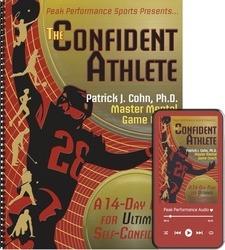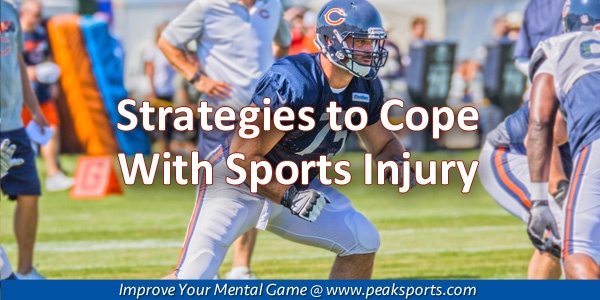The Psychology of Sports Injury
A sports injury is devastating for almost every athlete.
Not only do you experience physical pain and the discomfort associated with rehab, but it can causes an emotional and mental impact on the athlete.
What are the anxieties and fears when you are injured?
These include:
- A loss of identity: Since you probably have competed in your sport from an early age, you probably identify with your sport (“I am a baseball player,” “I am a gymnast,” “I am a soccer player,” etc).
- Losing that connection with your team: Your team is most likely part of your social circle also. You may feel your injury is driving a wedge between you and your friends/teammates.
- Doubts about your future: You may wonder if you will be able to compete at the same level as before the injury or, even worse, will the injury prevent you from ever playing again. You may fear losing a scholarship or not getting accepted into the college of your choice.
- Losing your role on the team: You may fear being replaced on the team or having your playing time drastically reduced.
- The pain of rehab: Rehab can be physically uncomfortable, take a huge chunk of time out of your day and may be a financial strain on your family.
- Fear of re-injury: When you return to your sport, your head may be filled with images of getting hurt again and may be an even greater source of anxiety.
- Loss of confidence: Injury can lead some athletes to doubt their ability to return to a prior level of performance before injury.
The mental impact of injury must be handled with care if you are to have a successful return to your sport.
What, then, is the most effective mindset when dealing with an injury?
Let’s look at the example of Malik Hooker…
Hooker is a 21-year-old safety who was drafted with the 15th overall pick last month by the Indianapolis Colts.
Due to surgery for a sports hernia and a torn labrum in his hip, Hooker has yet to practice with his fellow rookie teammates and will be unable to do so until late July.
Rather than having a “poor me” mindset, Hooker instead has taken a positive approach regarding his injury.
That is not to say that Hooker is happy about being injured, but Hooker is utilizing his injury timeout to best prepare for his first NFL season.
HOOKER: “Right now, the playbook’s my best friend. Studying film, watching film and just learning the playbook inside and out. What good is it if I don’t know what I’m doing out there but I’m going 110 speed?”
By taking an alternative view of your injury, you could return to competition better than before with greater motivation and more mental resiliency/toughness.
Tips For Coping With Injury:
Ask yourself, “How can I take advantage of this break from competing? How can I stay sharp, stay positive and better prepare myself for a return to action?”
Look for some way to improve your game when not practicing:
- Work on your mental game…
- Scout your competition…
- Strengthen a weaker body part…
- Study how elite athletes compete in your sport.
Look at the positive aspects of the injury. Does it give your more time to work on the playbook or get caught up in other areas of your life, such as studies?
If you have an injury today, you can start by making sure you are proactive with your confidence and not leave it to chance…
Related Sports Psychology Articles
- Returning to Competition After Injury
- Control Your Emotions When Returning From an Injury
- How to Maintain Confidence After an Injury
*Subscribe to The Sports Psychology Podcast on iTunes
*Subscribe to The Sports Psychology Podcast on Spotify
Download a free sports psychology report to improve your mental game!
Learn more about our one-on-one mental game coaching.
The Confident Athlete

“The Confident Athlete” consists of 2 audio programs that include 14 days of confidence fueling exercises and a simple to follow workbook that guides you through the 14 days, helps you apply the strategies, and customizes the exercises to your personal needs.
Let me help you put a stop to the confidence leak. You can learn to have greater levels of confidence in competition than you do in practice by identifying the specific ways you undermine your own confidence and how to convert your practice confidence into COMPETITIVE CONFIDENCE.
“The Confident Athlete” is a ground-breaking system to teach you how to think like a champion and have ultimate self-confidence every time you step on the playing field, court, track, or course. The confident athletes was developed for any athlete – junior to professional –that wants to gain confidence. However, coaches and sports parents can learn how to teach others to perform with ultimate confidence. Use my program if you want to bust a slump or just wanting higher or more consistent levels of self-confidence.

